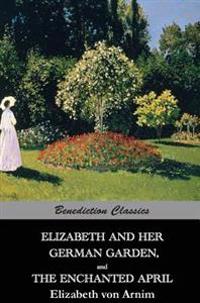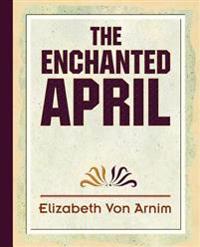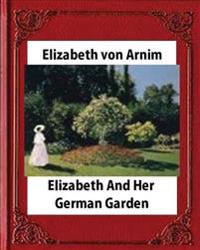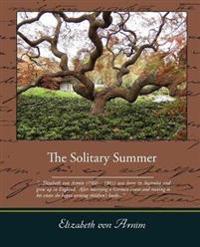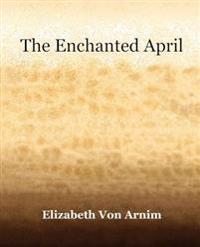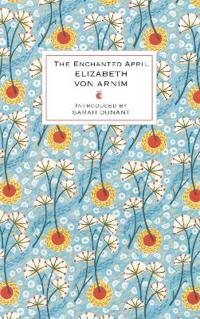Elizabeth and Her German Garden, and the Enchanted April (Inbunden)
avElizabeth Von Arnim
ISBN: 9781781394519 - UTGIVEN: 2015-01The Adventures of Elizabeth in Rugen (Storpocket)
avElizabeth von Arnim
ISBN: 9781844082766 - UTGIVEN: 200602In 1901 the 'real' Elizabeth holidayed on the Baltic island of Rugen with just her maid, a coachman, a carriage piled with luggage, and a woman friend. From such unpromising beginnings Elizabeth weaves a captivating farrago around her encounters. There's the snobbish bishop's wife and her personable[...]
Elizabeth and Her German Garden (Storpocket)
avElizabeth von Arnim
ISBN: 9781844083497 - UTGIVEN: 2006-02May 7th -- There were days last winter when I danced for sheer joy out in my frost-bound garden in spite of my years and children. But I did it behind a bush, having a due regard for the decencies ...' Elizabeth's uniquely witty pen records each season in her beloved garden, where she escapes from t[...]
Elizabeth und ihr deutscher Garten (Övrigt)
avElizabeth von Arnim
ISBN: 9783942374477 - UTGIVEN: 2014-08The Enchanted April (Häftad)
avElizabeth Von Armin, Elizabeth Von Arnim
ISBN: 9781594623363 - UTGIVEN: 2006-08Elizabeth and Her German Garden, by Elizabeth Von Arnim (Novel) (häftad)
ISBN: 9781530892723 - UTGIVEN: 2016-04The Enchanted April (Häftad)
avElizabeth von Arnim
ISBN: 9780141191829 - UTGIVEN: 2012-04A notice in "The Times" addressed to 'Those who Appreciate Wistaria and Sunshine' advertises a 'small mediaeval Italian Castle on the shores of the Mediterranean to be let furnished for the month of April'. Four very different women take up the offer, escaping dreary London for the sunshine of Italy[...]
The Enchanted April (Storpocket)
avElizabeth von Arnim
ISBN: 9780860685173 - UTGIVEN: 1991-11A discreet advertisement in 'The Times', addressed to 'Those who Apppreciate Wisteria and Sunshine...' is the impetus for a revelatory month for four very different women. High above the bay on the Italian Riviera stands San Salvatore, a mediaeval castle. Beckoned to this haven are Mrs. Wilkins, Mrs[...]
Elizabeth Von Arnim (Inbunden)
ISBN: 9781409411673 - UTGIVEN: 2013-06In the first book-length treatment of Elizabeth von Arnim's fiction, Isobel Maddison examines her work in its historical and intellectual contexts, demonstrating that von Arnim's fine comic writing and complex and compelling narrative style reward close analysis. Organised chronologically and themat[...]
The Enchanted April (Inbunden)
avElizabeth von Arnim
ISBN: 9781844087617 - UTGIVEN: 201108A discreet advertisement in 'The Times', addressed to 'Those who Apppreciate Wisteria and Sunshine...' is the impetus for a revelatory month for four very different women. High above the bay on the Italian Riviera stands San Salvatore, a mediaeval castle. Beckoned to this haven are Mrs. Wilkins, Mrs[...]

